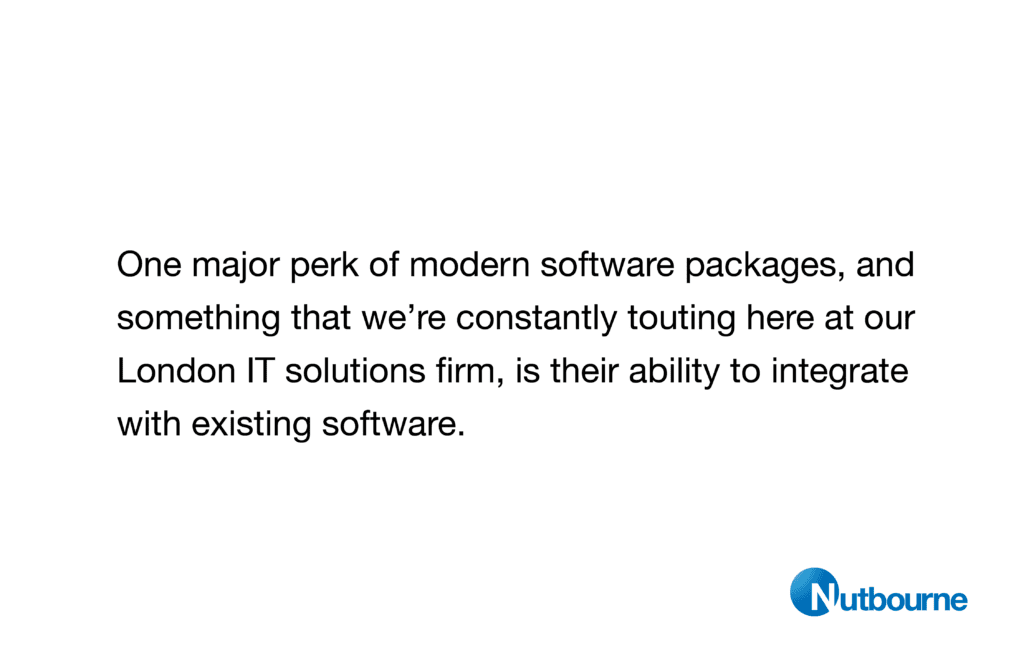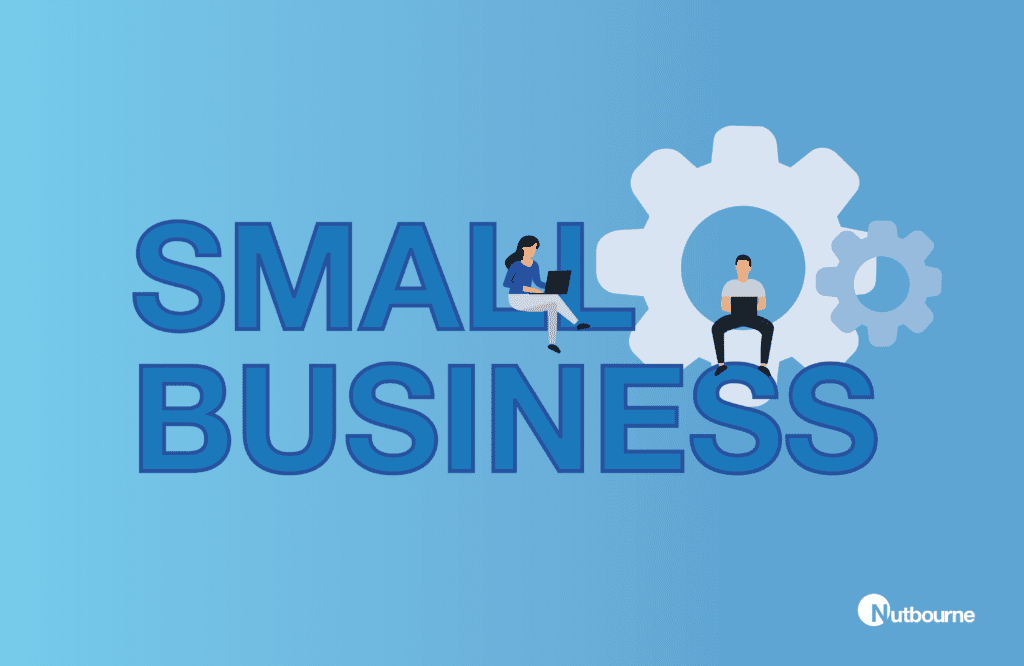People starting out in business today are in a luxurious position compared to their counterparts from the year 2000. Why? Well, according to Marcus Evans, MD of London IT solutions firm, Nutbourne, the software at their disposal makes business essentials, like accounting, far simpler and far easier to get a handle on your business – which is one less headache for the SME owner.
“20 years ago you had a couple of main accountancy providers, for example. They were behemoths, and they didn’t really cater to different-size businesses. If you look at where they are now, however, they’ve been forced to become more modular because of the competition, and not because they were going to anyway.
“What you’ll find is that accountancy packages, stuff like the Xero came in, QuickBooks. There were a lot of competitors who hit the market, and then suddenly you got a burst of choice.
“Now, with choice come issues. Which one do you go with? Is it the right one? What it does mean, though, is it drives the price down. In fact, it’s actually relatively cheap now to use an accounting software package.”
One major perk of modern software packages, and something that we’re constantly touting here at our London IT solutions firm, is their ability to integrate with existing software. It makes investing in such applications less risky, more sustainable and far easier to use. On top of that, they can work harmoniously with auxiliary or essential systems to shine a light on the way in which a business works.

“Financial software, for example, has become a lot better and a lot more functional,” Marcus says. “Their ability is a lot more varied than simply providing a ledger for the company’s money. In combination with platforms like Microsoft Azure and Google Docs, for example, you’ve a lot of data passing through them.
“Simply put, the more information you have, the better your custom reporting becomes. They’ve got concepts you can just pull straight out and it’ll tell you how well your guys are working with very minor modification. This, in turn, tells you what kind of issues you have. It’s also not just accounting systems. Lots of systems have become smarter. For example, we look at what sensitive calls are picked up or abandoned in our phone system.
“The next level of software has made life a lot easier to do the long, more arduous tasks by collecting the relevant data that was previously done manually.” It seems to Marcus, then, that one of the biggest innovations in IT solutions, over the past few years, has been the automation/streamlining of (the more administrative, but no less important) digital processes.
Seamless integration and the modern ecosystem
Because applications are now far better at talking to each other, it’s easier for SMEs to build a suite of applications to suit their business. As little as 10 years ago, the approach was to pick a one-size-fits-all programme, or to build one in-house. The former was clunky, labour-intensive and required bolt-ons to suit the business; the latter required year-round maintenance, which is costly, time-consuming and requires constant support from IT solutions firms such as ourselves, whether that be on-site or remote. The modern approach is far more accommodating, however.
“There are so many products out there that naturally talk to each other and that are developed with growing businesses in mind,” says Marcus.
“The old approaches, like developing your own systems in-house, have become much less mainstream, especially for SMEs that need to be agile, flexible and expansive. Developing a system is expensive and hard work, and then you have to keep it updated, to boot. Most of the off the shelf software just does it for you as standard.”
Optimising your suite of applications for the modern business environment shouldn’t therefore be too difficult, though there are some common pitfalls to avoid. Marcus advises taking a few for a test drive, getting a clear idea of how they work and interact what you already have and what their potential is to scale with the company’s needs.
“With software, it can be tempting to just grab the first one off the shelf. To go with a name you know or one that is similar to what you already have. You need to do your due diligence, though. Our London IT solutions firm is constantly being met by clients who have rushed into their choice of software. Then, they’ve come to regret it down the line.
“You’ve got to look at all your IT solutions as a whole and put a road-map together. In this way, you can build a comprehensive eco-system of programmes. It’s worth planning how your IT systems will integrate, both now, and in the future when you have grown.
“For example, if you go from 5 staff to 50, how are your systems going to continue to talk? Will you need to update? Are there going to be problems scaling, how you can make it cyber-secure? All these things need to be considered, just to make sure it all integrates and works properly, because lots of people just pick software because they’ve used that it before.”

While that isn’t necessarily a bad rationale to start with, it’s worth thinking of your software investment in a wider context. Going forward, it’s necessary to have systems that talk to each other and can integrate, enrich data and give you new insights on the business. Data is king in an information-rich world, there’s no two ways about it. And the more usable data you can gather, the better chance you have of making a success of your business.
“A lot of companies are still operating with piece-meal, legacy systems that either don’t communicate or can’t communicate, at all. What that means is you have a lot of siloed data. This is dirty data that could otherwise be using to gain insight from and improve strategy. Instead, it’s left gathering proverbial dust. In an age where that information is so valuable, getting a handle on it can be huge. It can be the difference between failure and success. Between profit and loss.
“I would recommend, as a priority, looking for products that naturally talk to each other or that have synchronisation through APIs. This aids the flow of information through the business and that’s one of the most powerful things a business has. You have to do everything you can to keep that consistent.”
So, if you’d like to find out more about our London IT solutions firm, then get in touch! Contact Nutbourne today on 0203 137 7273.
